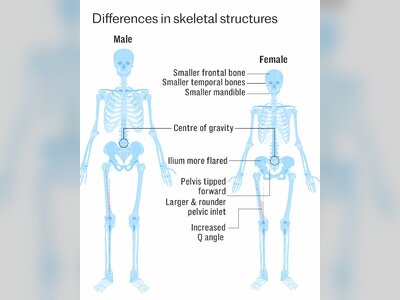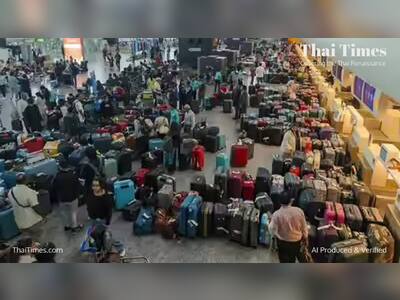Thai Government Mulls Withdrawal of Entertainment Complex Bill Amid Public Concerns
Officials consider halting controversial legislation as public opposition grows.
Chousak Sirinil, Minister attached to the Prime Minister’s Office, announced on Thursday that the Thai government is currently deliberating whether to postpone or withdraw the Entertainment Complex Bill.
According to Sirinil, any withdrawal would require approval from both the Cabinet and the House of Representatives.
However, he mentioned that if there are no objections from the House, the bill could be withdrawn immediately.
Sirinil cited two primary reasons for the potential withdrawal: the recent Cabinet reshuffle, which necessitates further discussion for clarity, and the ongoing vote count to gauge the necessary support for the bill.
He stated, "Given the Cabinet reshuffle and the appointment of new ministers, it is necessary to revisit this matter to ensure readiness before moving forward."
Manaporn Charoensri, the Deputy Minister of Transport, confirmed that the government side of the House coordination committee had informally discussed the possibility of withdrawing the bill.
She noted that there was feedback indicating that the public does not fully understand the concept of the entertainment complex.
To address this issue, the government plans to hold further discussions within the House coordination committee on July 7.
Charoensri added that this matter was not addressed in the Cabinet's special meeting on the same day.
Originally, the government indicated it would only delay consideration of the bill.
However, mounting pressure to withdraw it has emerged in recent days.
On July 2, over 100 members of anti-casino and online gambling networks gathered at Government House, submitting a petition calling for the permanent withdrawal of the Entertainment Complex Bill and proposed amendments to the Gambling Act BE 2478 (1935) concerning online gambling.
Thanakorn Khomkrit, Secretary-General of the Stop Gambling Foundation, expressed concerns over the public’s lack of understanding regarding the entertainment complex proposal.
He pointed out that amidst pressing national issues such as economic challenges, political instability, and environmental concerns, the government should refrain from rushing the bill forward as it could risk social division.
“Given the societal context, the best course of action is for the government to withdraw this from the parliamentary process,” Khomkrit remarked.
Civil society groups have echoed these sentiments, arguing that both the Entertainment Complex Bill and the Gambling Act amendment should be removed from the parliamentary agenda to promote social peace and policy integrity.
Vasin Pipattanachat, from the health risk management network, highlighted ongoing issues such as corruption and social inequality in Thailand.
He warned that establishing entertainment complexes might exacerbate public health and quality of life challenges, leading to mental health issues, crime, and debt problems.
People’s Party MP Parit Wacharasindhu conveyed through social media that advancing the Entertainment Complex Bill would represent a significant test of the government’s trustworthiness amidst political turmoil.
He reiterated his party’s opposition to the bill, citing three main concerns: the unclear economic benefits, the lack of preventive measures in addressing potential social impacts, and the non-transparent nature of the policy-making process.
“If the government genuinely considers these concerns, we believe the Cabinet should choose to withdraw the bill.
However, if they persist, the bill will be on the agenda for the House’s first meeting next Wednesday (July 9),” stated Wacharasindhu.
He also mentioned that opposition leaders and the People’s Party are preparing to submit a motion for a no-confidence debate under Article 151, focusing on the Cabinet's actions and decisions.
According to Sirinil, any withdrawal would require approval from both the Cabinet and the House of Representatives.
However, he mentioned that if there are no objections from the House, the bill could be withdrawn immediately.
Sirinil cited two primary reasons for the potential withdrawal: the recent Cabinet reshuffle, which necessitates further discussion for clarity, and the ongoing vote count to gauge the necessary support for the bill.
He stated, "Given the Cabinet reshuffle and the appointment of new ministers, it is necessary to revisit this matter to ensure readiness before moving forward."
Manaporn Charoensri, the Deputy Minister of Transport, confirmed that the government side of the House coordination committee had informally discussed the possibility of withdrawing the bill.
She noted that there was feedback indicating that the public does not fully understand the concept of the entertainment complex.
To address this issue, the government plans to hold further discussions within the House coordination committee on July 7.
Charoensri added that this matter was not addressed in the Cabinet's special meeting on the same day.
Originally, the government indicated it would only delay consideration of the bill.
However, mounting pressure to withdraw it has emerged in recent days.
On July 2, over 100 members of anti-casino and online gambling networks gathered at Government House, submitting a petition calling for the permanent withdrawal of the Entertainment Complex Bill and proposed amendments to the Gambling Act BE 2478 (1935) concerning online gambling.
Thanakorn Khomkrit, Secretary-General of the Stop Gambling Foundation, expressed concerns over the public’s lack of understanding regarding the entertainment complex proposal.
He pointed out that amidst pressing national issues such as economic challenges, political instability, and environmental concerns, the government should refrain from rushing the bill forward as it could risk social division.
“Given the societal context, the best course of action is for the government to withdraw this from the parliamentary process,” Khomkrit remarked.
Civil society groups have echoed these sentiments, arguing that both the Entertainment Complex Bill and the Gambling Act amendment should be removed from the parliamentary agenda to promote social peace and policy integrity.
Vasin Pipattanachat, from the health risk management network, highlighted ongoing issues such as corruption and social inequality in Thailand.
He warned that establishing entertainment complexes might exacerbate public health and quality of life challenges, leading to mental health issues, crime, and debt problems.
People’s Party MP Parit Wacharasindhu conveyed through social media that advancing the Entertainment Complex Bill would represent a significant test of the government’s trustworthiness amidst political turmoil.
He reiterated his party’s opposition to the bill, citing three main concerns: the unclear economic benefits, the lack of preventive measures in addressing potential social impacts, and the non-transparent nature of the policy-making process.
“If the government genuinely considers these concerns, we believe the Cabinet should choose to withdraw the bill.
However, if they persist, the bill will be on the agenda for the House’s first meeting next Wednesday (July 9),” stated Wacharasindhu.
He also mentioned that opposition leaders and the People’s Party are preparing to submit a motion for a no-confidence debate under Article 151, focusing on the Cabinet's actions and decisions.











